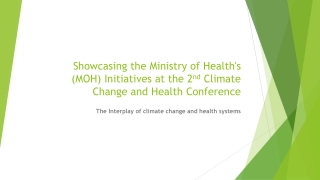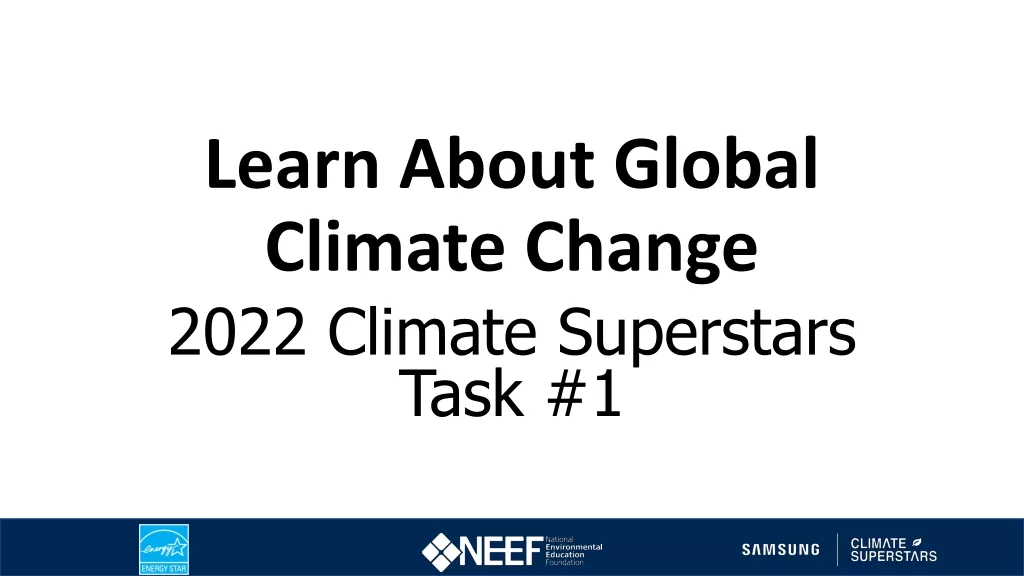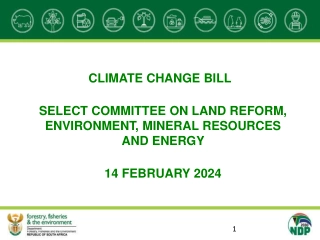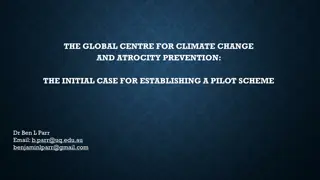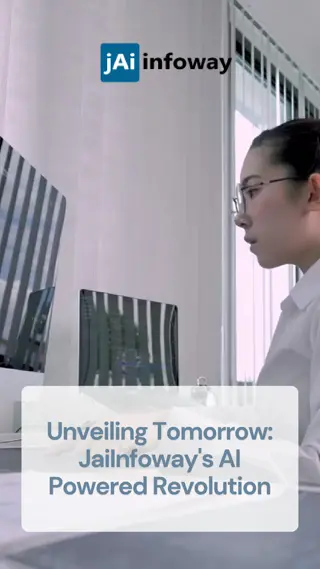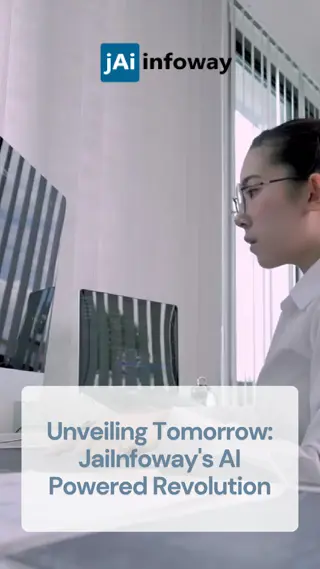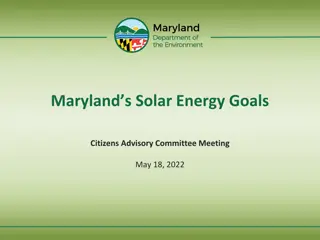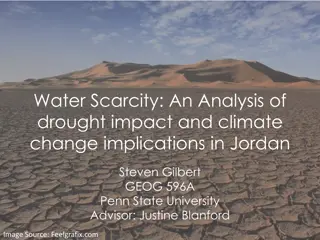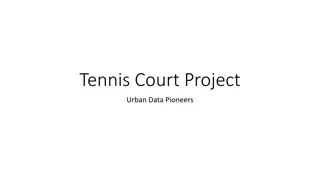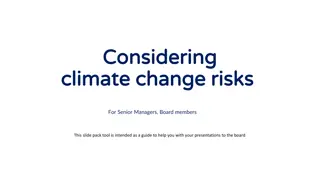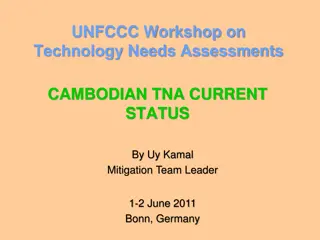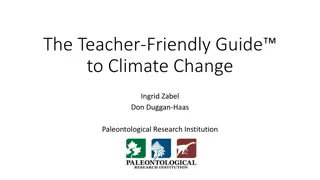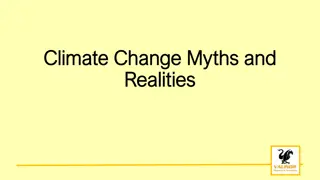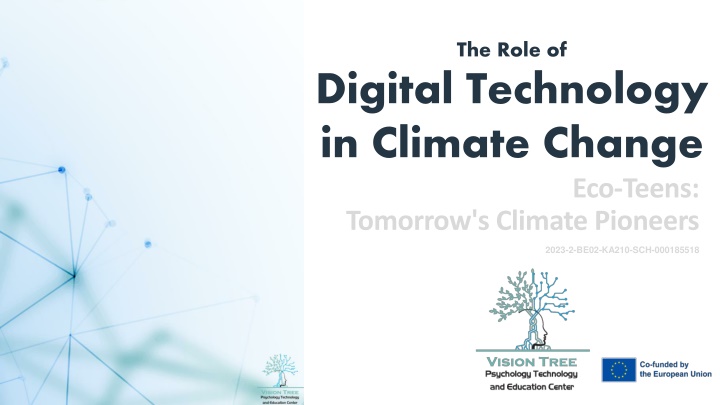
Digital Technology in Climate Change: Tomorrow's Climate Pioneers
Climate change is a pressing issue primarily driven by human activities such as fossil fuel usage and industrial processes. This presentation discusses the role of digital technology in monitoring, data collection, analysis, predictive modeling, mitigation, and adaptation strategies relating to climate change. It explores how electronic tools like computers, mobile devices, sensors, and IoT systems are used to generate, store, and process data to track long-term changes in temperature, precipitation, and wind patterns. Examples include NASA's Earth Observing System satellites and smart agriculture systems utilizing IoT sensors. Moreover, it delves into data analysis and predictive modeling utilizing big data, analytics, trend analysis, and pattern recognition for climate risk assessment, renewable energy optimization, and agricultural planning. The impact of digital technology on climate change is examined from various aspects, including policy implications and raising awareness. Through these advancements, eco-teens are empowered to become climate pioneers of tomorrow, fostering innovative solutions for a sustainable future.
Download Presentation

Please find below an Image/Link to download the presentation.
The content on the website is provided AS IS for your information and personal use only. It may not be sold, licensed, or shared on other websites without obtaining consent from the author. If you encounter any issues during the download, it is possible that the publisher has removed the file from their server.
You are allowed to download the files provided on this website for personal or commercial use, subject to the condition that they are used lawfully. All files are the property of their respective owners.
The content on the website is provided AS IS for your information and personal use only. It may not be sold, licensed, or shared on other websites without obtaining consent from the author.
E N D
Presentation Transcript
The Role of Digital Technology in Climate Change Eco-Teens: Tomorrow's Climate Pioneers 2023-2-BE02-KA210-SCH-000185518 2024 BRUSSELS/BELGIUM
Digital Technology 1 Climate Change 2 Different Aspects of Impacts 3 Discussion 4
Digital Technology What? Electronic tools Systems Devices Resources Does: Generate data Store data, Process data Examples: Computer, mobile devices, watches, sensors, lamps
Climate Change Long-term changes in Temperature Precipitation Wind patters Primarily driven by human activities Fossil fuels, industrial processes Consequences Global warming Rising sea level Frequent and severe weather events (heavy rainfall, heatwaves, droughts )
Different Aspects of Digital Technology s Impact on Climate Change Digital Technology in Monitoring and Data Collection Data Analysis and Predictive Modelling Mitigation and Adaptation Strategies Policy and Awareness
Digital Technology in Monitoring and Data Collection Digital Technology in Monitoring and Data Collection Remote Sensing and Satellite Technology Monitoring Environmental, Atmospheric and Oceanic Changes Tracking Atmospheric and Oceanic Parameters Examples Nasa s Earth Observing System (EOS) satellites Temperature, vegetation, atmospheric composition Internet of Thins (IoT) Interconnected devices that collect and share data Increasingly used in monitoring, real-time data from various locations Air Quality, Weather stations, Flood monitoring Examples: Smart agriculture systems use IoT sensors to monitor soil conditions, weather, crop health
Data Analysis and Predictive Modelling Data Analysis and Predictive Modelling Big Data and Analytics Data Integration and Processing: Collecting, merging, parsing, analysing of data Trend Analysis and Pattern Recognition Example: Google Earth AI and Machine Learning Google s DeepMind = wind pattern prediction, optimizing wind farms Applications: Climate Risk Assessment Renewable Energy Optimization Agricultural Planning
Mitigation and Adaptation Strategies Mitigation and Adaptation Strategies Mitigation Strategies Smart Grids Sustainable Agriculture and Precision Farming Precision Agriculture Data-driven Decision Making Emissions Reduction Technologies Electric Vehicles, Energy-Efficient Buildings.. Adaptation Strategies Climate-Resilient Infrastructure Smart Water Systems
Mitigation and Adaptation Strategies Mitigation and Adaptation Strategies Mitigation Strategies Smart Grids Sustainable Agriculture and Precision Farming Precision Agriculture Data-driven Decision Making Emissions Reduction Technologies Electric Vehicles, Energy-Efficient Buildings.. Adaptation Strategies Climate-Resilient Infrastructure Smart Water Systems
Policy and Awareness Policy and Awareness Digital technology for Formulating, implementing and promotion climate policies & raising awareness Emission Tracking Systems Policy Development and Simulation Tools Social Media Campaigns Educational Websites and Online Courses Games
The Role of Digital Technology in Climate Change Thank you For being with us 2024 CO-FUNDED BY THE EUROPEAN UNION. VIEWS AND OPINIONS EXPRESSED ARE HOWEVER THOSE OF THE AUTHOR(S) ONLY AND DO NOT NECESSARILY REFLECT THOSE OF THE EUROPEAN UNION OR THE EUROPEAN EDUCATION AND CULTURE EXECUTIVE AGENCY (EACEA). NEITHER THE EUROPEAN UNION NOR EACEA CAN BE HELD RESPONSIBLE FOR THEM. BRUSSELS/BELGIUM

